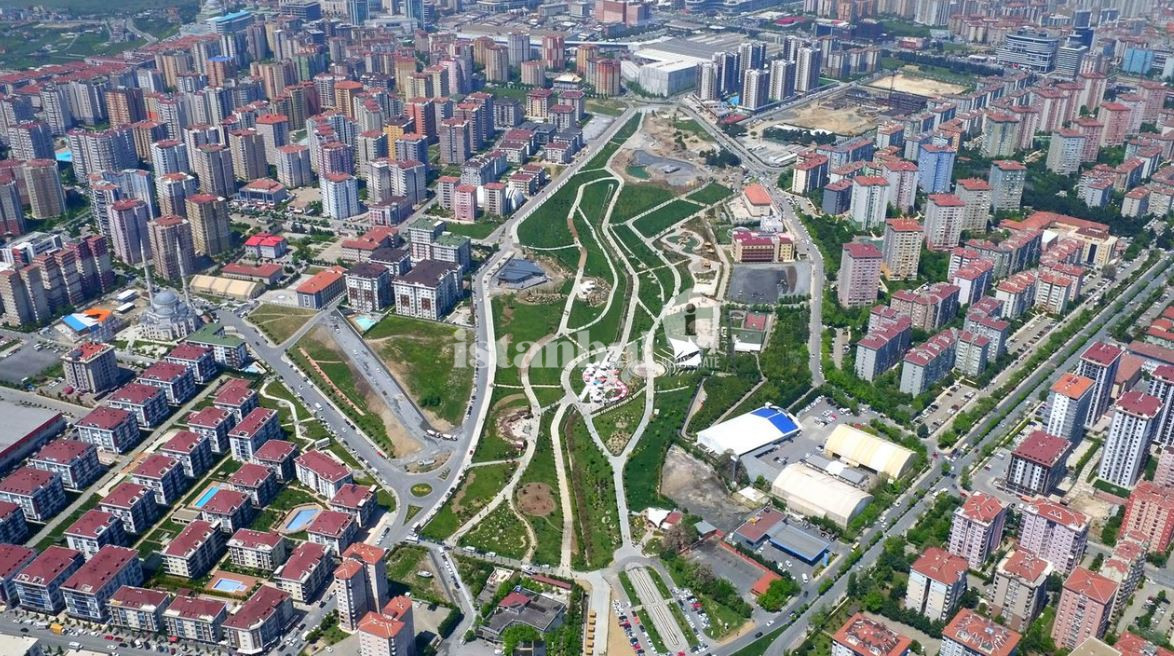
- 5 October 2024
The Impact of Foreign Investment on Turkey’s Real Estate Market
The Impact of Foreign Investment on Turkey’s Real Estate Market
In recent years, Turkey’s real estate market has become a focal point for foreign investors seeking opportunities in both residential and commercial properties. This influx of international capital has reshaped the market landscape, spurring growth, modernization, and a redefinition of the sector’s long-term potential. The growing interest in Turkish real estate is attributed to various factors, including Turkey’s strategic location, economic growth potential, legal reforms, and government incentives.
Lilium Bahce is a strategic location to live in
1. A Strategic Geographical Hub

Turkey’s unique geographical position as a bridge between Europe, Asia, and the Middle East has always been a significant advantage. The country is an ideal hub for trade, tourism, and real estate development. Istanbul, in particular, has drawn attention as a global city where East meets West, leading to increased demand for property among foreign investors who see long-term value in its strategic location.
Moreover, Turkey’s increasing role in global trade and transport, with projects like the New Istanbul Airport and Canal Istanbul, has further elevated its appeal. Foreign investors are motivated by the prospect of high returns, not only from property appreciation but also from rental income, especially in touristic and commercial regions.
Kemer Country offers turkish citizenship by investment
2. Government Policies and Incentives
The Turkish government has taken active steps to attract foreign capital into its real estate sector. In 2012, Turkey passed a law that allowed foreign nationals to purchase property more easily by removing the reciprocity principle, which required their home countries to allow Turkish nationals to buy property in return. Since then, the government has introduced several other reforms and incentives, such as reducing the minimum investment requirement for citizenship through real estate purchases to $400,000 in 2018. These policies have been instrumental in drawing significant interest, particularly from investors in the Middle East, Asia, and Europe.
In addition, various tax breaks and exemptions have been introduced for foreign buyers, including exemptions from value-added tax (VAT) on property purchases made with foreign currency. This has incentivized a growing number of international investors to purchase property in Turkey as a way to secure Turkish citizenship while benefiting from favorable tax conditions.
3. Rising Demand from Middle Eastern and European Investors

Foreign investors from the Middle East, particularly from countries like Iraq, Iran, and Saudi Arabia, have played a substantial role in Turkey’s real estate boom. Cultural and religious affinities, along with geopolitical factors, have motivated many Middle Eastern buyers to view Turkey as a safe and attractive option for investment. The proximity to their home countries and the growing stature of Turkey as a stable and relatively affordable market compared to Europe further fuels demand.
Meanwhile, European investors, particularly from Germany, the UK, and Russia, also see Turkish real estate as a viable investment. The favorable exchange rate of the Turkish lira has provided Europeans with significant purchasing power, allowing them to acquire property in desirable locations such as Istanbul, Antalya, and Bodrum at competitive prices.
4. Economic Impact and Growth Potential
Foreign investment in Turkish real estate has created a robust economic impact. It has spurred growth in sectors such as construction, tourism, and services. Turkey’s construction boom, largely fueled by international capital, has resulted in the development of high-rise residential complexes, luxury hotels, shopping malls, and office buildings in key cities.
The real estate sector also supports job creation and boosts tourism as foreigners purchasing second homes contribute to the tourism industry by spending on travel, dining, and local businesses. Many foreigners view Turkish properties as vacation homes, especially in coastal cities such as Antalya, Fethiye, and Izmir.
Additionally, the revenue generated from foreign property sales has provided Turkey with a much-needed inflow of foreign currency, supporting its balance of payments and strengthening its international reserves. This is crucial in times when the Turkish lira has experienced volatility, making foreign investment in real estate an important stabilizing factor for the economy.
5. Challenges and Risks

Despite the positive impact, there are challenges associated with foreign investment in Turkey’s real estate market. One major issue is the volatility of the Turkish lira, which can deter some foreign investors, particularly those concerned about currency risks. Fluctuations in the value of the lira can affect the overall return on investment for foreigners, especially if they are looking to exit the market at a future date.
Furthermore, political and economic instability, including inflation and interest rate hikes, may pose risks to long-term foreign investment in the market. Potential investors also need to navigate bureaucratic hurdles and ensure compliance with local regulations, which may present difficulties if not properly managed.
6. Future Outlook
The outlook for foreign investment in Turkey’s real estate market remains promising despite certain challenges. The government’s continued focus on improving investment conditions, combined with Turkey’s strategic importance and growing economy, suggests that international interest will remain strong.
In the coming years, urban renewal projects and infrastructure developments will likely attract more foreign capital, especially as Turkey positions itself as a regional leader in both tourism and commerce. Additionally, with evolving consumer preferences, sustainable and smart real estate projects are expected to become more prevalent, opening up new avenues for investors who prioritize innovation and environmental considerations.
Related Posts

Analysis Of Turkey’s Real Estate Market in July 2024

